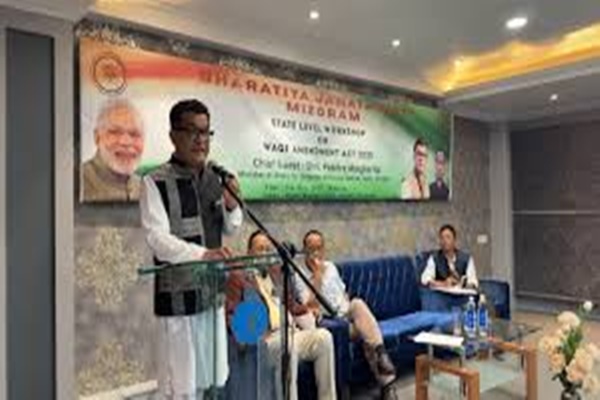Union Minister of State for Textiles and External Affairs, Pabitra Margherita, has said that the Waqf Amendment Act 2025 has been widely misunderstood and clarified that it is a reform-driven initiative aimed at ensuring transparency, good governance, and public benefit. Addressing media persons in Aizawl during the Waqf Sudhar Jan Jagran Abhiyan Workshop today, the Minister stated that the Waqf Amendment Act was passed to strengthen the management of Waqf properties and uplift communities across the country. He noted that the Joint Parliamentary Committee (JPC), consisting of 31 members, studied 7,772 petitions over a span of five years. The committee held 38 meetings and consulted 284 stakeholders, including 25 State Waqf Boards, 15 State Governments, 5 Minorities Commissions, and 20 MPs, MLAs, and MLCs. The Bill was debated in Parliament for over 25 hours before being passed.
Speaking at the interaction, Lalrinliana Sailo, Convener of the Mizorama Waqf Sudhar Jan Jagran Abhiyan highlighted the need to raise awareness in all regions and emphasized that the concept of Waqf promotes social harmony and equality across all religions.
During the Aizawl workshop, experts outlined the meaning and historical significance of Waqf. Rooted in Islamic law, a Waqf is a charitable endowment for purposes such as building mosques, schools, or hospitals. These properties are considered inalienable – they cannot be sold, gifted, inherited, or otherwise transferred. The event was part of a nationwide effort to raise awareness about the Waqf (Amendment) Act 2025.


